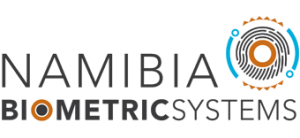Enhanced Banking Solution by Namibia Biometric Systems, NBS
The last article focused on biometric solution for online banking, new biometric Automated Teller Machines, ATMs. This article focuses on the limitations of online banking as it does not cater for offline banking services which are essential for good customer satisfaction and for a large segment of the population in 3rd world countries.
A review of the banking solution technology by researcher at BRL highlights that debit and credit cards used to be magnetic-stripe cards in compliance with the International Organization for Standardization and International Electrotechnical Commission, ISO, Magnetic Stripe Card Standards (ISO 7810, ISO 7811, and ISO 7813). Some of the limitations of magnetic-stripe cards are that:
Magnetic stripe cards have minimal security. The data on the card is easily read from and written to a magnetic stripe card, information can be easily stolen and a duplicate magnetic stripe card can be created.
Magnetic stripe cards have minimal data capacity – The data storage is very limited and thus providing significant constrains of what can be stored on the cards.
Magnetic stripe cards have minimal authentication security – The cards payment methods require the cardholder to confirm the payment with a handwritten signature on a slip of paper.
To circumvent the limitations of magnetic stripe cards, hybrid smart cards consisting of both a microprocessor chip and a magnetic stripe were introduced. These hybrid banking cards significantly improves the authentication capability and enables new protocols for securing payment processes. In the absence of an online connection to the issuing bank’s network, the card is able to represent the card issuing bank and to authorise payments on the behalf of the bank by verifying a Personal Identification Number, PIN, entered by the customer against the PIN stored in the chip of the smart card. However, our researchers at BRL are keen to highlight that Biometric based solutions have been introduced to overcome the limitations of traditional authentication methods such as PIN and password based.
Therefore, a modern banking solution must overcome the limitations of traditional authentication methods while utilising the benefits of both offline and online banking. A modern banking solution must not depend on the cashier’s ability to visually compare the image of a given signature with the signature image on the back of the card. Therefore, researchers at BRL are keen to highlight some of the requirements for a modern banking solution:
- It must meet the latest 2011 EMV 4.3 Specifications (named after the organisations Europay, Mastercard, and Visa, who created the first version).
- It must meet the latest ISO/IEC 7816 requirements and building blocks for smart-card based payment systems.
- It must meet the latest on-card biometric standards such as ISO/IEC 7816-11 & ISO/IEC 24787 specifying several approaches on how to achieve personal verification through biometric methods.
BRL researchers within NBS continue to work with vendors and independently review the optimal banking solution which is suitable for online services, offline services and suitable for both traditional and biometric authentication methods providing banks with customisation capabilities as required. Researchers at BRL with doctorates in Biometrics, PhD degrees, view the banking solution as an optimisation problem and therefore apply advanced mathematics for a solution which minimises the costs to the financial institution (including over consultation costs), minimise the costs to customers, minimise the impact to the nation while maximising the Return on Investment, ROI. In additions, NBS’s solution is designed to minimise over consultation and avoid reputational costs from multinational companies monopolising the biometrics market. It is essential for 3rd world countries to obtain biometric solutions characterised by high accuracy and speed while minimising the cost which is independent of reputation.
In summary, the banking solution by researcher at BRL and NBS technicians has the capabilities to effectively operate online or offline as an individual bank account for all types of transactions such as Salary Payments, Third Party Money Transfers, Third Party Bill Payments, Salary Advances or Loan Registration to Cards, Social Grant Benefit Payments & Pension Collection & Distribution, Transacting at Retail Merchants, Pre-paid Airtime and Electricity, Insurance, National ID & Voting, Driver’s License, National Health Insurance and Medical & Patient Management.
More information on the implementation of biometric based solution for banking can be obtained via a requested from info.@namibiabiometricsystems.com.
